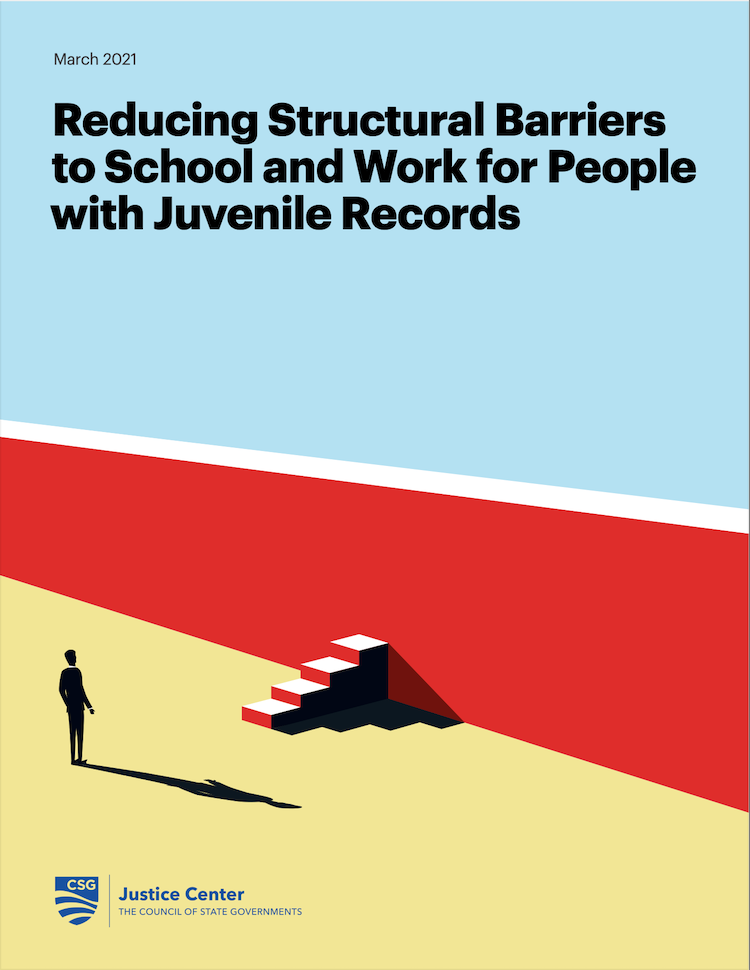Reducing Structural Barriers to School and Work for People with Juvenile Records
Topics:
Criminal and Juvenile Records
Employment
Youth/Young Adults
 In recent years, a growing number of states have enacted reforms to ease restrictions related to education and employment for people with criminal records. However, few have devoted the same attention to how these “collateral consequences” impact people with juvenile records.
In recent years, a growing number of states have enacted reforms to ease restrictions related to education and employment for people with criminal records. However, few have devoted the same attention to how these “collateral consequences” impact people with juvenile records.
To better understand the education and employment barriers that people with juvenile records face, The Council of State Governments (CSG) Justice Center conducted an unprecedented analysis of policies and practices in 12 states. and used the findings to develop recommendations and resources that policymakers in all states can use to guide statutory reforms.
The study's authors cite that, like adults, people with juvenile adjudications can experience a variety of barriers to their continued education, credentialing, and employment for the rest of their lives, even as a result of committing minor offenses. These restrictions, they assert, especially affect people of color due to persistent racial and ethnic disparities in rates of juvenile justice involvement. Further, given the impact that COVID-19 will have for the foreseeable future on both employment rates and state budgets, the author's state that it is crucial that state policies do not unnecessarily prevent people with juvenile records from taking part in an inclusive economic recovery.
Related Resources:



